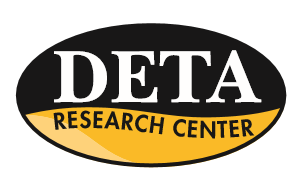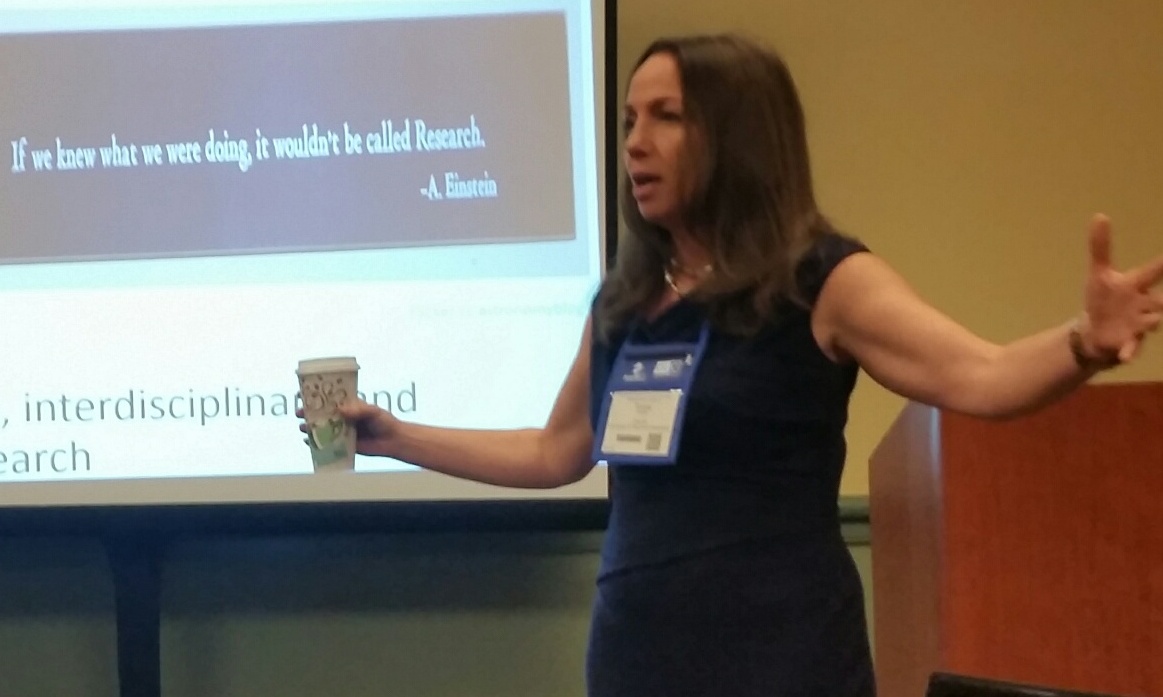Research on Distance Ed and Technological Advancements: An Update on DETA
Published by: WCET | 9/14/2016
Tags: DETA, Distance Education, Evaluation, Quality, Research, U.S. Department Of Education
Published by: WCET | 9/14/2016
Tags: DETA, Distance Education, Evaluation, Quality, Research, U.S. Department Of Education
The National Research Center for Distance Education and Technological Advancements (DETA) is wrapping up its second year of a national U.S. Department of Education funded effort to conduct rigorous research to identify key factors influencing student success in blended, online, and competency-based education.
The DETA Research Toolkit was launched in 2015 intended to help overcome the lack of research literacy in distance education practice and the methodological disciplinary  divisions by providing a common language for educators to conduct research. It contains guides on designing experimental and survey research, support for data collection through institutional warehoused data and student surveys, a student survey instrumentation packet for dozens of meaningful measures, data codebooks to facilitate merging of data sets, and more. Notably, the DETA Research Toolkit has been downloaded by almost 600 individuals in every state of the U.S. and in over 20 countries throughout the world in less than a year. These research tools facilitate cross-institutional empirical data collection examining students, courses, programs, and institutions to identify instructional and institutional practices that influence student outcomes, in particular for underrepresented students.
divisions by providing a common language for educators to conduct research. It contains guides on designing experimental and survey research, support for data collection through institutional warehoused data and student surveys, a student survey instrumentation packet for dozens of meaningful measures, data codebooks to facilitate merging of data sets, and more. Notably, the DETA Research Toolkit has been downloaded by almost 600 individuals in every state of the U.S. and in over 20 countries throughout the world in less than a year. These research tools facilitate cross-institutional empirical data collection examining students, courses, programs, and institutions to identify instructional and institutional practices that influence student outcomes, in particular for underrepresented students.
As shared on the WCET Frontiers blog last fall, DETA Subgrant Awards included a competitive proposal process to identify and fund faculty and institutional partners to employ these research designs to address top questions in distance education as outlined in toolkit. These top research questions were developed at a national summit held last year bringing 50 experts from across the country to guide the DETA research agenda. Since last fall, several institutions have partnered with DETA to conduct research at their institutions, including Oregon State University, University of Central Florida, California State University Fullerton, Milwaukee Area Technical College, Florida SouthWestern State College, San Diego Community College District, Montana State University, and WCET. Each of these institutions collected student data in survey or quasi-experimentally designed studies in the Spring 2016 semester and completed preliminary analysis over the summer months. Several were part of cross-institutional studies. With a good foundation of national research, we look forward to bringing on several new partners this fall.
We still have several studies in which we are looking for institutional partners for a fall data collection. Interested in being a DETA Partner? The data collection consists of DETA gathering institutionally warehoused data, most likely from your student information system, and the administration of a survey to your blended, online, or competency-based education students. Please complete this form to show your interest.
We are working on preparing a series of DETA Research Briefs and DETA Webinars to help share the findings of our research. The research briefs will be 2-page documents that contain an abstract, introduction, methods, results, and conclusions. The webinars will go into much more detail explaining the university or college demographics, particulars about their online courses and programs, description of the intervention, if applicable, recommendations for future research, and implications for practice. This series will be coming later this fall.
We are putting together a special edition of the Online Learning Journal of DETA-supported research that will be released in 2017. The special edition will contain 8 peer-reviewed journal articles highlighting DETA research designs. Each article will discuss implications for future research and practice.
We are looking to release DETA Research Toolkit 2.0 this fall. We are currently looking for contributors and reviewers. Feel free to email us to express your interest.

Learn More about DETA at the WCET Annual Meeting
Join the DETA Community in Minneapolis! We will be at the WCET Annual Meeting next month holding sessions to bring folks together, share research, and discuss challenges and opportunities in conducting research in an effort to build a community to increase awareness of research being conducted, build collaborations in research and funding, and support each other in conducting rigorous research. If you are interested in attending our sessions, helping facilitate a session, or presenting at one of the sessions, check out more details. There will be primarily 3 sessions that you can attend:
Tanya Joosten, PhD
Director, eLearning Research and Development, Academic Affairs
Co-Director, National Research Center for Distance Education and Technological Advancements
University of Wisconsin-Milwaukee